Search Results
Showing results 321 to 340 of 409
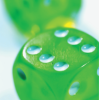
Race to the Top
Source Institutions
In this math game (Page 6 of the Are You Game? PDF), learners examine the probability of rolling sums from 0 to 12 with two dice. The first player to reach the finish line is the winner.
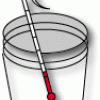
Cooling the Mummy's Tomb
Source Institutions
In this activity, learners conduct an experiment to help Pharaoh design a better insulated tomb.
Is It Possible: Estimating Measurement
Source Institutions
In this activity, learners will decide together on a question about how far, long or high the group could reach together.
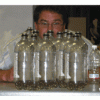
A Mole of Gas
Source Institutions
In this two-part activity, learners use everyday materials to visualize one mole of gas or 22.4 liters of gas. The first activity involves sublimating dry ice in large garbage bag.
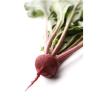
Membrane Permeability with Beets
Source Institutions
In this lab exercise, learners explore diffusion, cell membranes and particle size using beets and three alcohols.

Get the Porridge Just Right
Source Institutions
Learners set up three different bowls, each with a different mass of oatmeal. Learners monitor the temperature of the oatmeal and find that larger masses take longer to cool.
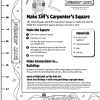
Make Ziff's Carpenter's Square
Source Institutions
In this Cyberchase activity, learners make carpenter's squares and use them to measure square corners. Learners cut out the carpenter's square template and attach it to tagboard.
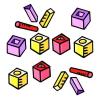
Geometric Solids
Source Institutions
This math activity exposes early learners to a variety of three-dimensional objects. Learners bring geometric solids (everyday objects) from home.
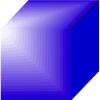
Scaling Cubes
Source Institutions
In this activity, learners explore scale by using building cubes to see how changing the length, width, and height of a three-dimensional object affects its surface area and its volume.
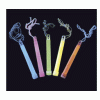
Illuminations on Rates of Reactions
Source Institutions
In this activity, learners investigate the speed of chemical reactions with light sticks. Learners discover that reactions can be sped up or slowed down due to temperature changes.
Look Around: Hunt For Sizes, Shapes and Numbers
Source Institutions
In this activity, learners will participate in a scavenger hunt involving sizes, shapes, and numbers. This activity works well with a whole group, individuals, or families.
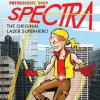
How Thick is Your Hair?
Source Institutions
In this activity on page 13 of the PDF, learners use a laser pointer (with known wavelength of light) to measure the thickness of a human hair.
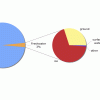
Earth's Water: A Drop in Your Cup
Source Institutions
This creative lesson plan provides a visual way for learners to gain knowledge about the finite amount of fresh water on Earth and encourages the discussion of the various ways to conserve this resour
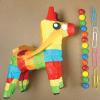
Family Math Activity: Measuring with Paper Clips and M&Ms
Source Institutions
In this activity, young learners and their caregivers use non-standard tools, like M&Ms and paper clips, to measure things around their home.

Balanced Budget Chemistry
Source Institutions
In this activity, learners balance chemical equations and discover the law of conservation of mass. Learners use coins to model molecules to balance the equations.
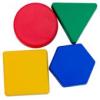
Copy Cats
Source Institutions
In this math activity, learners use what they know about shapes to copy a friend's hidden picture. Learners create a design out of pattern blocks and then hide their picture behind a screen.
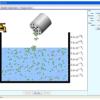
Salts & Solubility
Source Institutions
In this online interactive simulation, learners will add different salts to water and then watch the salts dissolve and achieve a dynamic equilibrium with solid precipitate.
Pósteres Sobre el Espacio y Matemáticas
Source Institutions
Exponga estos pósteres en el salón o déjelos donde los chicos los puedan explorar. Los chicos buscan las respuestas en línea, en libros de consulta, y en calendarios y almanaques.
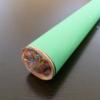
Kaleidoscope
Source Institutions
In this activity, learners build inexpensive kaleidoscopes using transparency paper and foil (instead of mirrors).
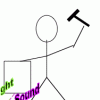
Lagging Sound
Source Institutions
In this group activity, learners see and hear the speed of sound. A learner designated the "gonger" hits a gong, once every second, as the rest of the group watches and listens from a distance.
